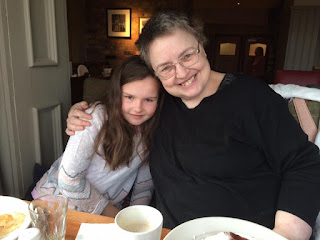A is for Alpha Male and Austen, Jane
Here it is! The first official post in The A-Z of Writing Romance. Over the coming months I will be working my way through the alphabet, and then go around again, ably abetted by some of my fellow romance writers.
Conventions of Romance
A is for … Alpha Male
Since Mr Darcy and Mr Rochester, the alpha male hero has enthralled romance readers, and writers, for many years. He is drop dead gorgeous and can be very charming. He is a man at the top of his game and is usually very rich and very powerful (but not always). He is the head of a great company or a high-ranking member of the nobility. Maybe he’s even a prince or an Arab Sheik. He knows what he wants and he’s not afraid to go out and get it. And when he wants the heroine, nothing and nobody stands in his way. The alpha male has the heady scent of testosterone that leaves a lot of heroines (and readers!) panting.
The alpha male is also flawed, with his very alpha-ness sometimes being his biggest fault. His pride often gets the better of him, and whilst he is never intentionally unkind, he does make mistakes. Think of Rochester, keeping the secret of the mad wife in the attic, and hoping for happiness with Jane Eyre. Yes it’s selfish of him, but to understand why he did it, you would have to understand the laws of the time. A man, or woman, could not divorce a spouse who was insane. Rochester thinks he can get away with it, and is willing to risk it to be with Jane, but he doesn’t reckon on Jane’s stronger moral code. He loses a lot, including his sight and the use of one hand (a very Biblical punishment) before he is free to be happy with his Jane.
Alpha males have changed a lot over the years. A modern audience will not forgive a hero who indulges in a bit of correctional and/or spousal rape. Nor will a modern reader put up with a hero who is physically abusive to the heroine, whereas in at least two books I’ve read from the past, the hero threatened to beat the heroine ‘black and blue’ if she so much as looked at another man. I think we were supposed to think ‘Aw, he must really love her’, but now it comes across as controlling and abusive.
So how do you, the romance novelist, write the alpha male? The important thing to remember is that alpha does not mean cruel either to the heroine or to anyone else and sadly this is a mistake many newer writers make. They make their alphas all bossy and dominating and forget that alphas must also be charming. No one likes a hero who spends his time berating the heroine for not living up to his expectations. He may have the wrong impression of her, for some reason, and that’s where the conflict comes in, but he will still be protective of her.
Your alpha hero will always be noble, even if he makes mistakes. In fact, his nobility may cause him problems, if he has a strongly defined sense of loyalty or duty.
In a novel by one of my favourite writers, the heroine is due to marry a relative of the hero in an arranged marriage, making the hero very angry indeed. Yet when there is violent upheaval in the country to which she has travelled for the wedding, it’s the hero who takes her to safety and keeps her there until the danger has passed. Of course this gives them time to work on their relationship and it all works out in the end, but the point is that as upset as he is about her maybe marrying someone else, he still cares enough about her to keep her safe.
More reading:Writing the Alpha Male
Please do share your own favourite alpha males with me in the comments section below.
Notable Names
A is for …Austen, Jane – Jane Austen might not have written the first romantic novel, but I think it’s fair to say that she has had an awful lot to do with popularising the genre we all know and love. Her influence is not just evident in Regency novels, which still use many of the tropes she popularised, but also in modern chick-lit, particularly with the now legendary Bridget Jones. Austen’s Darcy was also one of the first brooding alpha males to excite female readers. Or was that Colin Firth? I get (happily) confused…
Television and film adaptations (did I mention Colin Firth?) have ensured her enduring legacy and there has also been some more outlandish treatments of her work, including Pride and Prejudice and the Zombies by Seth Grahame-Smith.


Well worth popping over to see that picture of Colin Firth :o)
ReplyDeleteGreat blog, too!